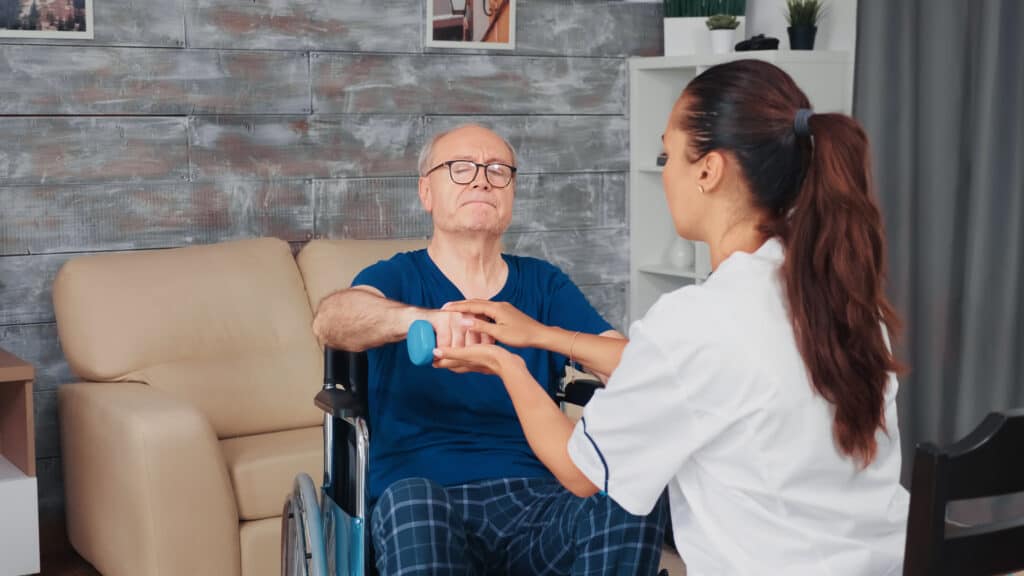Caregiver training in Beavercreek involves critical legal and ethical considerations to ensure the well-being of both caregivers and their clients. These considerations form the foundation for effective and responsible caregiving practices in the community.
Compliance with Legal Standards
Caregiver training programs in Beavercreek must adhere to state and federal regulations governing healthcare and caregiving services. This includes compliance with laws such as HIPAA (Health Insurance Portability and Accountability Act) to protect client confidentiality and ensure the secure handling of personal health information.
Compliance with legal standards is fundamental to caregiver training in Beavercreek, ensuring that caregivers are well-prepared to provide ethical, competent, and legally compliant care. By staying informed and upholding these standards, caregivers uphold the trust placed in them by clients and regulatory authorities alike, contributing to the overall quality and integrity of caregiving services in the community.

Ethical Responsibilities
Ethical considerations play a crucial role in caregiver training. Caregivers are trained to uphold principles of beneficence, non-maleficence, autonomy, and justice. They must prioritize the well-being and dignity of their clients while respecting their rights to make informed decisions about their care.
Beneficence
Caregivers are ethically obligated to act in the best interests of their clients. This principle of beneficence entails promoting the well-being of clients through competent and compassionate care. Caregivers prioritize enhancing the quality of life for their clients by meeting their physical, emotional, and social needs with empathy and skill.
Non-Maleficence
Central to ethical caregiving is the principle of non-maleficence, which emphasizes the duty to do no harm. Caregivers must avoid actions that could harm their clients, whether physically, emotionally, or psychologically. This includes ensuring safe handling during caregiving tasks, administering medications correctly, and preventing accidents or injuries.
Respect for Autonomy
Respecting the autonomy of clients is essential in caregiver training. Clients have the right to make informed decisions about their care and treatment options based on their preferences, values, and goals. Caregivers support autonomy by providing information, discussing care plans, and respecting clients’ choices, even if they differ from the caregiver’s recommendations.
Justice
Caregivers uphold principles of justice by treating all clients fairly and equitably. This includes providing care without discrimination based on factors such as race, ethnicity, religion, gender, or socioeconomic status. Caregivers advocate for access to quality care for all clients, ensuring that resources and services are distributed fairly within the community.
Confidentiality and Privacy
Maintaining client confidentiality is crucial in caregiver training. Caregivers learn to respect and protect clients’ privacy by safeguarding personal health information and only sharing information with authorized individuals or entities as permitted by law. Upholding confidentiality builds trust and ensures the dignity and autonomy of clients are preserved.
Training on Cultural Sensitivity
Beavercreek’s diverse population necessitates training caregivers in cultural sensitivity. Understanding and respecting cultural differences help caregivers provide inclusive and respectful care that meets the unique needs of each client.
Training on cultural sensitivity is integral to caregiver training programs in Beavercreek, promoting respect, understanding, and inclusivity in care delivery. By embracing cultural diversity and incorporating these principles into practice, caregivers uphold the highest standards of compassionate and effective caregiving for all clients.
Scope of Practice and Professional Boundaries
Caregiver training programs emphasize the importance of understanding their scope of practice and maintaining professional boundaries. Caregivers learn to recognize when to seek assistance from healthcare professionals and how to establish appropriate relationships with clients and their families.
Understanding their scope of practice helps caregivers recognize when a situation requires intervention from a licensed healthcare professional, such as a nurse or physician. They are trained to communicate effectively with healthcare teams and facilitate coordinated care that meets the comprehensive needs of their clients.
Additionally, maintaining professional boundaries is essential in caregiver training. Caregivers learn to establish appropriate relationships with clients and their families, maintaining a balance between empathy and professionalism. They are trained to respect client privacy and confidentiality, ensuring that personal information is handled securely and disclosed only as permitted by law or with the client’s consent.
Moreover, caregivers are educated on the ethical implications of maintaining these boundaries. This includes recognizing and mitigating situations that could lead to conflicts of interest or breaches of trust. By adhering to these standards, caregivers foster a professional environment that prioritizes the well-being and autonomy of their clients while upholding the integrity of the caregiving profession.
Continuous Education and Training
In Beavercreek, caregivers are encouraged to pursue ongoing education and training to stay updated with best practices, legal changes, and advancements in healthcare technology. This ensures they provide high-quality care that meets current standards.
Duty of Care and Reporting Obligations
Caregivers are trained to recognize signs of abuse, neglect, or exploitation. They have a legal duty to report such incidents promptly to protect vulnerable clients and comply with mandated reporting requirements.
Conclusion
Understanding legal and ethical considerations is paramount. At Positive Solutions Behavior Group LLC in Beavercreek, OH, we prioritize compliance with state regulations and ethical guidelines to ensure the highest standards in caregiver education. Our comprehensive training programs not only equip caregivers with essential skills but also emphasize respect, confidentiality, and integrity in their practices. By partnering with us, caregivers can confidently meet legal requirements while delivering compassionate care that aligns with ethical standards.
For more information on how our caregiver training programs uphold legal and ethical standards, please contact Positive Solutions Behavior Group LLC at 859-282-0400. Let’s work together to empower caregivers with the knowledge and ethics necessary for exceptional care.






